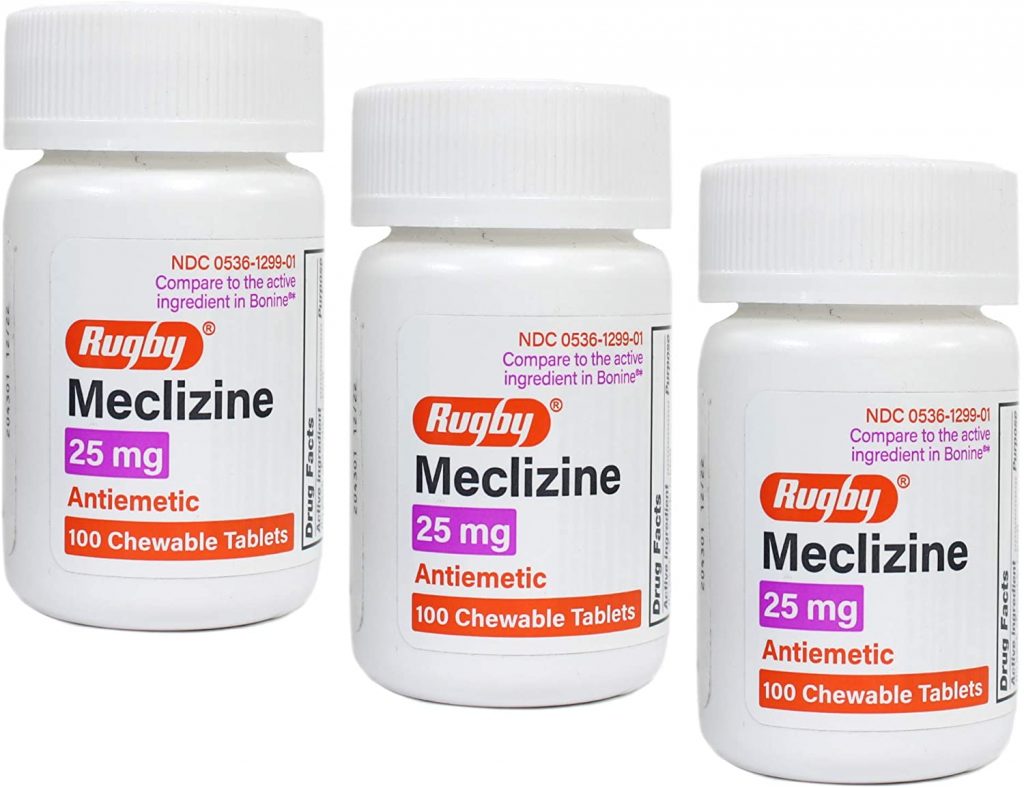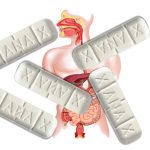How Long Does Meclizine Stay In Your System?

Meclizine is a medication used to prevent and control nausea, vomiting, and dizziness caused by motion sickness. It is also used for vertigo (dizziness or lightheadedness) caused by ear problems.
Meclizine is an antihistamine. It works to block the signals to the brain that cause nausea, vomiting, and dizziness.
This medicine is available only with your doctor’s prescription.
This product is available in the following dosage forms:
• Tablet
• Tablet, Chewable
The FDA approved meclizine in February 1957.
How should Meclizine be used?
Before taking meclizine,
- tell your doctor and pharmacist if you are allergic to meclizine, any other medications, or any of the ingredients in the meclizine preparation. Ask your doctor or pharmacist or check the package label for a list of the ingredients.
- tell your doctor and pharmacist what prescription and nonprescription medications you are taking, especially amobarbital (Amytal), medications for colds or allergies, pain medications, phenobarbital, sedatives, seizure medications, sleeping pills, tranquilizers, and vitamins. These drugs may increase the drowsiness caused by meclizine.
- tell your doctor if you have or have ever had glaucoma, an enlarged prostate, urinary tract blockage, or asthma.
- tell your doctor if you are pregnant, plan to become pregnant, or are breastfeeding. If you become pregnant while taking meclizine, call your doctor.
- talk to your doctor about the risks and benefits of taking meclizine if you are 65 years of age or older. Older adults should not usually take meclizine because it is not as safe or effective as other medications that can be used to treat the same condition.
Meclizine comes as a regular and chewable tablet and a capsule. For motion sickness, meclizine should be taken 1 hour before you start to travel. Doses may be taken every 24 hours if needed. For dizziness caused by an ear condition, follow your doctor’s directions. Follow the directions on your prescription label carefully, and ask your doctor or pharmacist to explain any part you do not understand. Take meclizine exactly as directed. Do not take more or less of it or take it more often than prescribed by your doctor.
Chewable tablets may be chewed or swallowed whole.
How long does it take for meclizine to work?
Meclizine is a histamine H1 antagonist with antiemetic and antivertigo properties and studies reveal that it takes approximately 60 minutes for meclizine to start working. Meclizine primarily works by inhibiting signaling pathway transduction through histaminergic neurotransmission.
How long does meclizine stay in your system?
There are several factors that come into play when estimating how long Meclizine will stay in your system because every patient has physiology unique to them. Here are some major factors you should consider when trying to understand how long Meclizine will stay in your body:
• Age: Typically, the younger you are, the more efficient your body functions are. The more efficient your body functions, the faster Meclizine will be removed from your system.
• Body height/weight/fat: Your specific prescribed Meclizine dosage corresponds to your body height, weight, and fat. Usually, larger people will be given a higher dosage of Meclizine. The higher the dose of Meclizine you have been taking, the longer Meclizine will take to be removed from your system.
• Genetics: Genes predispose people to different metabolic functions, which is a key factor in how your body processes medications like Meclizine. For this reason, your genetic makeup comes into play when estimating how long Meclizine will remain in your system.
• Kidney and liver functions: The liver and kidneys eliminate everything you ingest, and Meclizine is no exception. If your liver or kidneys are damaged, it will most likely take longer for your body to remove the Meclizine from your system.
• Metabolism: Your metabolism determines how quickly you process foods, liquids, and medications such as Meclizine. If your metabolism is slow, it will take longer for your body to process and eliminate Meclizine from its system than someone with a fast metabolism.
• Usage frequency: The longer you have been taking Meclizine, the longer it will remain in your system. For example, it will take longer for someone who has taken Meclizine for several years to remove Meclizine from the body than someone who has only been taking Meclizine for a few months.
Meclizine has a plasma elimination half-life of about 5-6 hours in humans. The half-life of a drug is the time it takes for the amount of a drug’s active substance in your body to reduce by half.
Half-life is used to estimate how long it takes for a drug to be removed from your body. It takes about 4 to 5 half-lives, for the plasma concentrations of a given drug to fall below a clinically relevant concentration and be considered eliminated. As a result, it can take about 30 hours (about 2 days) for a dose of Meclizine to be eliminated from the body.

What are the likely side effects of Meclizine?
Meclizine oral tablet may cause drowsiness. You shouldn’t drive, use machinery, or do other tasks that require alertness until you know how this drug affects you. It may also cause other side effects.
The more common side effects of meclizine can include:
- drowsiness
- tiredness
- headache
- blurry vision
- dry mouth
If these effects are mild, they may go away within a few days or a couple of weeks. If they’re more severe or don’t go away, talk with your doctor or pharmacist.
Serious side effects
Call your doctor right away if you have serious side effects. Call 911 if your symptoms feel life-threatening or if you think you’re having a medical emergency. Serious side effects and their symptoms can include the following:
- serious allergic reactions, with symptoms such as:
- trouble breathing
- swelling of your throat or tongue.





